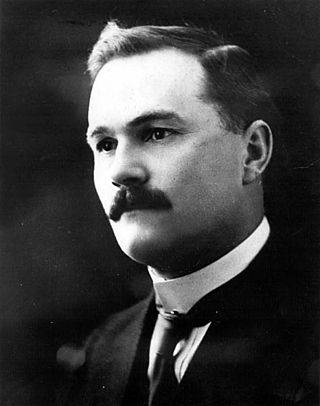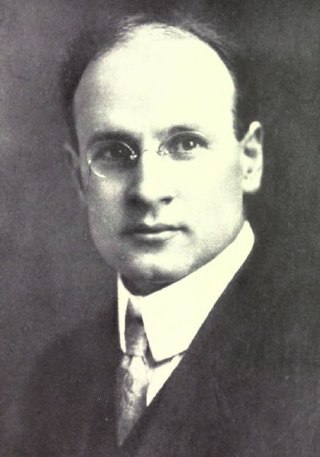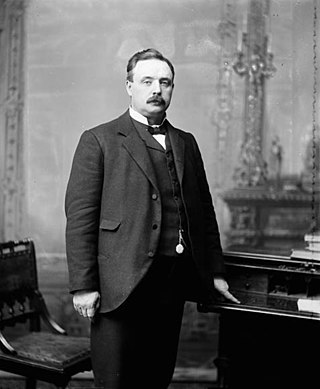Related Research Articles
The Progressive Party of Canada,formally the National Progressive Party,was a federal-level political party in Canada in the 1920s until 1930. It was linked with the provincial United Farmers parties in several provinces,and it spawned the Progressive Party of Saskatchewan,and the Progressive Party of Manitoba,which formed the government of that province. The Progressive Party was part of the farmers' political movement that included federal and provincial Progressive and United Farmers' parties.

Ralph Edward Goodale is a Canadian diplomat and retired politician who has served as the Canadian High Commissioner to the United Kingdom since April 19,2021.
There have been various groups in Canada that have nominated candidates under the label Labour Party or Independent Labour Party,or other variations from the 1870s until the 1960s. These were usually local or provincial groups using the Labour Party or Independent Labour Party name,backed by local labour councils made up of many union locals in a particular city,or individual trade unions. There was an attempt to create a national Canadian Labour Party in the late 1910s and in the 1920s,but these were only partly successful.

The Patrons of Industry in Canada were based on the Patrons of Industry of Michigan that had formed in 1889. It was dedicated to upholding and encouraging the moral,social,intellectual,political and financial situation of farmers and to preserve the way of life that existed in farming communities in the late nineteenth century against encroaching industrialization. It cooperated with the urban labour movement to address the political frustrations of both groups with big business.

The 1896 Canadian federal election was held on June 23,1896,to elect members of the House of Commons of Canada of the 8th Parliament of Canada. Though the Conservative Party,led by Prime Minister Charles Tupper,won a plurality of the popular vote,the Liberal Party,led by Wilfrid Laurier,won the majority of seats to form the next government. The election ended 18 years of Conservative rule.

The United Farmers of Alberta (UFA) is an association of Alberta farmers that has served different roles in its 100-year history –as a lobby group,a successful political party,and as a farm-supply retail chain. As a political party,it formed the government of Alberta from 1921 to 1935.

Charles Avery Dunning was the third premier of Saskatchewan. Born in England,he emigrated to Canada at the age of 16. By the age of 36,he was premier. He had a successful career as a farmer,businessman,and politician,both provincially and federally.

Henry Herbert Stevens,was a Canadian politician and businessman. A member of R. B. Bennett's cabinet,he split with the Conservative Prime Minister to found the Reconstruction Party of Canada.

Sir Henry Lumley Drayton was a Canadian lawyer and politician.
The Liberal–Labour banner has been used several times by candidates in Canadian elections:

The 1900 Canadian federal election was held on November 7,1900 to elect members of the House of Commons of Canada of the 9th Parliament of Canada. As a result of the election,the Liberal Party,led by Prime Minister Wilfrid Laurier,was re-elected to a second majority government,defeating the Conservative Party and Liberal-Conservatives led by Charles Tupper.

Walter Humphries Montague,was a Canadian politician. He was a federal cabinet minister in the governments of Mackenzie Bowell and Charles Tupper,and subsequently a provincial cabinet minister in the Manitoba government of Rodmond Roblin. Montague was a member of the Conservative Party of Canada.

The First Parliament of the Province of Canada was summoned in 1841,following the union of Upper Canada and Lower Canada as the Province of Canada on February 10,1841. The Parliament continued until dissolution in late 1844.
James Charles McKeagney was a Canadian lawyer,politician,and judge.

Alfred Gilpin Jones,was a Canadian businessman,politician,and eighth Lieutenant Governor of Nova Scotia.

Joseph Andrew Clarke was a Canadian politician and lawyer. He served twice as mayor of Edmonton,Alberta,was a candidate for election to the House of Commons of Canada and the Legislative Assembly of Alberta,and was a member of the Yukon Territorial Council.
The 1878 Nova Scotia general election was held on 17 September 1878 to elect members of the 27th House of Assembly of the Province of Nova Scotia,Canada. It was won by the Liberal-Conservative Party.
John Charles Landeryou was a chef,a seniors rights activist,and a Canadian federal and long serving provincial level politician.
The 1948 Massachusetts general election was held on November 2,1948,throughout Massachusetts. Primary elections took place on September 14.
The 1946 Massachusetts general election was held on November 5,1946,throughout Massachusetts. Primary elections took place on June 18.